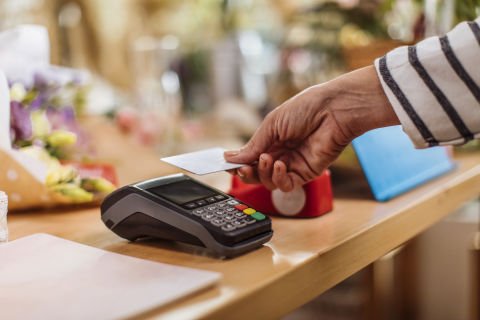ATM action highlights ‘cashless society’ concerns
The ‘Keep Cash’ movement is growing across Australia, and NSA is at the forefront of advocating for banknotes and coins to continue moving through the economy.

Key points
- Thousands of people have demonstrated that they want to keep cash
- NSA Chief Executive Officer, Chris Grice was among those who used an ATM on Tuesday in support
- Banks are closing down branches and ATMs
- Non-bank ATMs are charging up to $3 for a cash withdrawal.
On Tuesday this week, people from across Australia made the choice to withdraw cash from their local ATMs.
This coordinated effort, promoted by various groups across social media, was designed to draw attention to the relentless shift towards a cashless society.
National Seniors Australia has been a strong voice in support of the continued availability, accessibility, and acceptance of cash within the economy through its ongoing 'Keep Cash' campaign.
As a central component of its Keep Cash initiative, National Seniors is strongly campaigning for:
- Cash to remain a valid form of currency
- More support and education for seniors needing to access digital systems
- Retailers to continue to accept cash so that seniors and others disproportionately impacted by ‘cashless’ are not excluded.
This week’s action has highlighted the fact that ATMs, along with bank branches, have been disappearing across the country, making it more difficult for many Australians to access their own money.
NSA Chief Executive Officer, Chris Grice, who was one of the many Australians to use an ATM on Tuesday, says, “The move towards a ‘cashless society’ will disproportionately impact seniors and vulnerable people who may struggle with technology and online banking, highlighting concerns about digital exclusion.
“Many seniors are not comfortable banking online because they’re not tech savvy, and they're concerned about online and credit card scams.
“In many cases, cash is all they're familiar with, and is their only way to make financial transactions.”
He notes that while online transactions were convenient for many people, digital systems could shut down due to computer outages and natural disasters, highlighting the importance of cash accessibility during emergencies.
He says we should bear in mind the lessons of history, where some changes have had unintended consequences. Something that seems convenient today may turn out to be a problem tomorrow.
The number of ATMs across Australia has declined by about 60% since 2017, to an estimated 6,000 bank-owned machines today. This is on top of the 424 bank branches that closed the 2022-23 financial year alone.
One institution, BankWest, recently announced it will close all of its ATMs.
While non-bank ATMs can still be found in some places, they charge up to $3 per transaction, which is a big amount for pensioners and others on low or fixed incomes.
The Reserve Bank of Australia identified ATM closures as a problem as far back as 2021, noting “there are parts of regional and remote Australia with limited access to cash.
“People in these areas must travel longer distances to access cash, and the available access points do not always have nearby alternatives. This means that access to cash in these areas is more vulnerable to any future removal of cash services.”
Just last week, Coles was forced into an uncomfortable explanation after a leaked memo revealed contingency plans to revert to a card-only basis at its liquor division over Easter.
The memo came amid concerns over the solvency of cash management service company Armaguard. Employees of Liquorland, First Choice, and Vintage Cellars stores were advised to prepare to accept only card payments if their cash reserves were depleted due to a pause in the use of Armaguard services.
However, the supermarket group insisted it was not going cashless.
Back in 2021, a public backlash caused Woolworths to end a trial where only cashless payments were accepted at some of its Metro stores.
As the mass cash withdrawal on Tuesday demonstrated, the issue is not going away – and neither will NSA’s support for Australians who want to continue using cash in their everyday transactions.
For more information, visit our Keep Cash page.








